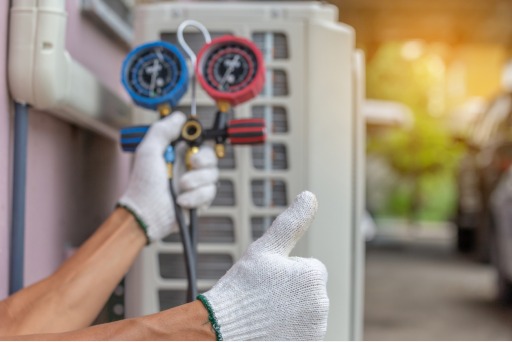A well-maintained hot water system is essential for any home, providing comfort and convenience with a reliable supply of hot water. In regions like Brisbane, where the demand for hot water remains constant throughout the year, proper maintenance becomes even more critical. Regular upkeep not only ensures the efficient operation of your system but also extends its lifespan, reduces energy consumption, and prevents unexpected breakdowns.
For homeowners looking to ensure their hot water Brisbane systems run smoothly, understanding the basics of maintenance can make a significant difference in performance and cost savings. This article provides practical tips and insights into maintaining your hot water system, from regular inspections to preventive measures and troubleshooting common issues. By following these guidelines, you can enjoy a consistent and efficient hot water supply in your home, regardless of the type of system you have.
Understanding Your Hot Water System
Maintaining an efficient hot water system is essential for any homeowner, especially in regions like Brisbane where the climate demands reliable hot water throughout the year. Understanding the type of hot water system you have is the first step towards effective maintenance.
There are several types of hot water systems commonly used in homes:
- Electric Hot Water Systems: These systems use electricity to heat water and are popular due to their simplicity and reliability. They are available in both tank and tankless models.
- Gas Hot Water Systems: These systems use natural gas or propane to heat water. They are known for their energy efficiency and faster heating capabilities compared to electric systems.
- Solar Hot Water Systems: Utilizing solar panels, these systems harness solar energy to heat water, making them an environmentally friendly option. However, they often require a backup system, such as electric or gas, to ensure a consistent hot water supply on cloudy days.
- Tankless Hot Water Systems: Also known as on-demand systems, these provide hot water only when needed, eliminating the need for a storage tank and reducing energy consumption.
For homeowners in Brisbane, understanding your specific hot water system is crucial for maintaining its efficiency and longevity. Each type of system has its own maintenance requirements and potential issues. Knowing these details allows you to implement the correct maintenance practices, ensuring a steady supply of hot water while preventing costly repairs.
Regular Inspection and Maintenance
Regular inspection and maintenance of your hot water system are crucial steps in ensuring its longevity and efficient operation, particularly for hot water Brisbane systems. By conducting routine checks, you can identify and address minor issues before they escalate into major problems, saving time and money in the long run. Here are key steps to include in your regular maintenance routine:
- Check for Leaks
Inspect your hot water system regularly for any signs of leaks. Leaks can lead to significant water damage and increased utility bills. Look for water pooling around the base of the tank or dripping from pipes and fittings. If you notice any leaks, it’s essential to address them promptly, either by tightening loose connections or calling a professional for repairs.
- Test the Pressure Relief Valve
The pressure relief valve is a critical safety component that prevents excessive pressure build-up in your hot water system. To test it, place a bucket under the discharge pipe and lift the valve’s lever. You should hear a rush of water into the bucket. If the valve doesn’t release water or continues to leak after the test, it may need to be replaced.
- Adjust Thermostat Settings
Maintaining the correct thermostat setting is vital for both safety and efficiency. Most experts recommend setting your thermostat to 120 degrees Fahrenheit (49 degrees Celsius). This temperature is hot enough to prevent bacterial growth but not so hot that it risks scalding or wastes energy. Periodically check and adjust the thermostat as needed.
- Inspect the Anode Rod
The anode rod is designed to prevent tank corrosion by attracting corrosive elements in the water. Over time, the rod deteriorates and needs to be replaced. Inspect the anode rod every three years by partially draining the tank and unscrewing the rod. If it’s heavily corroded or reduced in size, it’s time for a replacement.
- Schedule Annual Professional Inspections
While regular DIY maintenance is crucial, scheduling an annual professional inspection is equally important. A qualified technician can perform a thorough check of your system, identify potential issues, and carry out any necessary repairs or maintenance tasks that go beyond basic homeowner capabilities.
By following these steps, homeowners can ensure their hot water Brisbane systems operate efficiently and reliably. Regular inspection and maintenance not only enhance the performance and lifespan of your hot water system but also provide peace of mind knowing that your system is in optimal condition. Additionally, being aware of current PECO residential rates can help you better understand your energy expenses and make informed decisions about your energy usage. Proper maintenance, combined with smart energy management, ensures a reliable and cost-effective hot water supply for your home.
Preventive Measures for Optimal Performance
Implementing preventive measures is essential for maintaining the optimal performance of your hot water system. By taking proactive steps, homeowners can enhance efficiency, reduce the likelihood of breakdowns, and extend the system’s lifespan. Here are some key preventive measures to consider for your hot water Brisbane system:
- Prevent Sediment Build-Up
Sediment build-up in the tank can reduce the efficiency of your hot water system and cause damage over time. Regularly flushing the tank is an effective way to prevent sediment accumulation. Here’s how to do it:
- Turn off the power or gas supply to the water heater.
- Connect a garden hose to the drain valve and direct the other end to a safe drainage location.
- Open the drain valve and allow the tank to empty completely.
- Close the drain valve, remove the hose, and refill the tank.
- Restore the power or gas supply.
Additionally, consider installing a water softener if you have hard water, as this can help reduce sediment build-up.
- Insulate Pipes and Tank
Insulating your hot water pipes and tank can significantly improve the system’s efficiency by reducing heat loss. This means your system will use less energy to maintain the desired water temperature, leading to lower utility bills and a reduced environmental impact. Use pipe insulation sleeves for your pipes and a water heater insulation blanket for your tank.
- Check and Replace Sacrificial Anode
The sacrificial anode, typically made of magnesium or aluminum, helps prevent corrosion inside your hot water tank. Inspect the anode rod every three to five years and replace it if it’s significantly corroded. A well-maintained anode rod can greatly extend the lifespan of your tank.
- Install a Pressure Regulating Valve
High water pressure can damage your hot water system and reduce its efficiency. Installing a pressure regulating valve (PRV) can help maintain a consistent and safe water pressure level. Check your system’s pressure regularly and adjust the PRV as needed to keep it within the recommended range.
- Monitor Water Quality
The quality of the water in your area can impact the performance and longevity of your hot water system. Regularly test your water for high mineral content, acidity, or contaminants. If necessary, install water treatment solutions such as water softeners, filtration systems, or neutralizers to protect your system and ensure it operates efficiently.
By implementing these preventive measures, homeowners can optimize the performance of their hot water Brisbane systems. Proactive maintenance not only ensures a reliable supply of hot water but also contributes to energy savings and prolongs the life of the system, making it a wise investment for any household.
Troubleshooting Common Issues
Even with regular maintenance, hot water systems can encounter problems that disrupt their performance. Being able to identify and troubleshoot common issues can save homeowners time and money. Here are some typical problems with hot water Brisbane systems and how to address them:
- No Hot Water
When your system stops providing hot water, the cause could be simple or complex. Here’s a troubleshooting guide:
- Electric Systems: Check the circuit breaker to ensure it hasn’t tripped. If the breaker is fine, test the thermostat and heating elements. If these components are faulty, they may need replacement.
- Gas Systems: Verify that the pilot light is lit. If it’s out, follow the manufacturer’s instructions to relight it. If the pilot light won’t stay lit, there could be an issue with the thermocouple or gas supply.
- Insufficient Hot Water
If your system isn’t producing enough hot water, consider these potential causes and solutions:
- Thermostat Settings: Ensure the thermostat is set to the correct temperature (typically 120 degrees Fahrenheit or 49 degrees Celsius).
- Sediment Build-Up: Sediment in the tank can reduce the amount of available hot water. Flushing the tank can help restore capacity.
- Water Heater Size: If your household demand has increased, your water heater might be undersized. Consider upgrading to a larger unit or installing a tankless water heater for on-demand hot water.
- Strange Noises
Unusual noises, such as popping, banging, or hissing, often indicate sediment build-up or other issues:
- Popping/Banging: These sounds usually result from sediment build-up. Flushing the tank should alleviate the problem.
- Hissing: A hissing sound can indicate a leak in the system or a problem with the heating elements in an electric water heater. Inspect for leaks and replace faulty components as needed.
- Water Temperature Fluctuations
Inconsistent water temperatures can be frustrating and indicate several potential issues:
- Thermostat Problems: The thermostat may be malfunctioning or improperly set. Adjust or replace the thermostat if necessary.
- Dip Tube Issues: The dip tube directs cold water to the bottom of the tank for heating. If it’s broken or damaged, it can cause temperature fluctuations. Replacing the dip tube can resolve this issue.
- Cross-Connection: A cross-connection between hot and cold water lines can cause temperature instability. Ensure proper installation and check for any improper connections.
- Discolored or Smelly Water
Water discoloration or unpleasant odors often point to underlying problems:
- Rusty Water: This can indicate corrosion inside the tank or in the plumbing Inspect the anode rod and replace it if it’s corroded. If the tank itself is rusting, it may need to be replaced.
- Smelly Water: A sulfur-like smell often results from bacteria in the tank. Flushing the tank and cleaning it with a hydrogen peroxide solution can help. In some cases, replacing the anode rod with one made of a different material can also prevent odors.
Knowing when to handle issues yourself and when to call a professional is crucial. While many common problems can be fixed with some basic troubleshooting, more complex issues or those involving gas lines should be addressed by a qualified technician. Regular maintenance and timely repairs will ensure that your hot water Brisbane system continues to operate efficiently and reliably.
Conclusion
Maintaining your hot water Brisbane system is essential for ensuring reliable performance and extending its lifespan. By understanding your system, conducting regular inspections, implementing preventive measures, and troubleshooting common issues, you can keep your hot water system running efficiently. Regular maintenance not only enhances comfort and convenience but also provides significant cost savings and peace of mind. With these tips, homeowners can enjoy a consistent supply of hot water and avoid unexpected disruptions.




